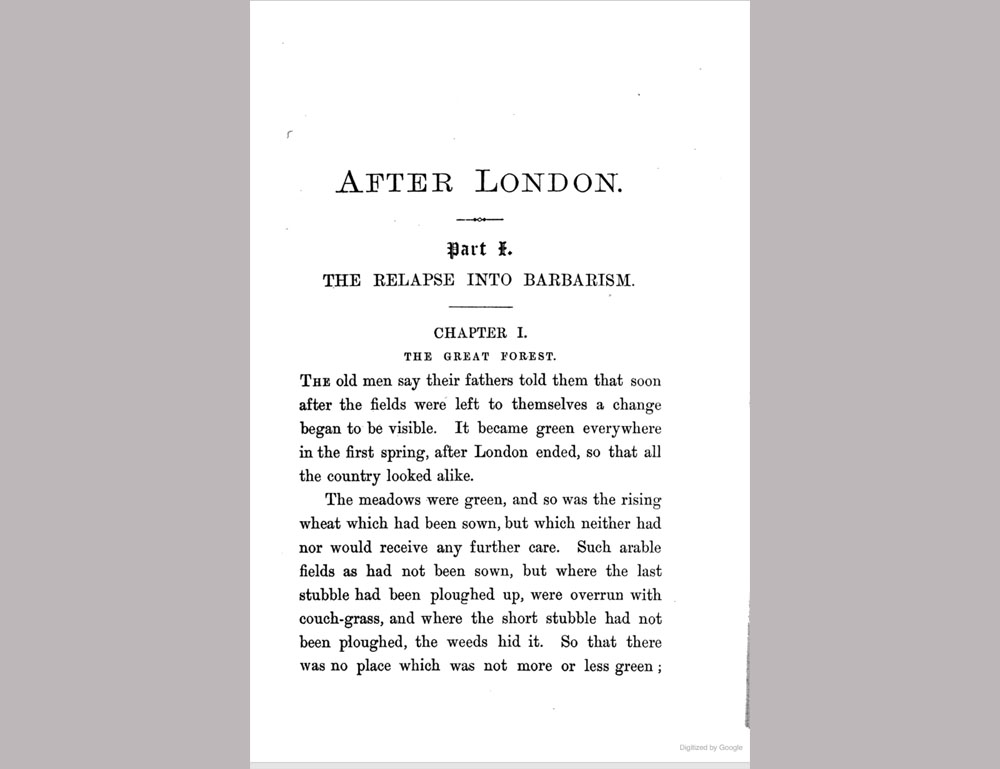As a writer of post-apocalyptic fiction, naturally I’m interested in the classics of the post-apocalyptic genre. Until I read Robert MacFarlane’s wonderful book Landmarks, I was not aware that some post-apocalyptic fiction was written during the 19th Century. MacFarlane devotes much of a chapter to Richard Jefferies, a prolific nature writer who also wrote fiction.
After London was published in 1885, the same year that Mark Twain published Adventures of Huckleberry Finn. I can’t say that After London is a particularly exciting novel. It’s packed with unalleviated exposition. The plot is thin. The conversations (such few as there are) are dull. Of the characters, only the protagonist Felix is much developed. However, Jefferies does succeed in painting a vivid and cinematic picture of his post-apocalyptic setting. In his imagined world, some catastrophe that he never describes (because the survivors don’t really know what happened) has wiped out most of the population. London is gone and is mostly flooded. Debris and siltation have blocked the major rivers, and a large lake forms in southeastern England. It’s on and around this lake where the story takes place.
You can read that Jefferies was an influence on J.R.R. Tolkien. I’m not so sure about that, since Tolkien was a great writer and Jefferies a pretty pallid one (his fiction, at least). But Tolkien and Jefferies did have in common a love of terrain and a love of wild nature. I don’t doubt in the least that After London occurred to Jefferies’ imagination because he hated the filth and sprawl of 19th Century London. And so Jefferies imagined London wiped out and its suburbs covered by a lake. Tolkien, too, hated modernity. Tolkien was born in 1892. By 1892, London was much cleaner. When Jefferies was 16, he and a cousin ran off to France. The year was 1864, and London’s sewer system was not completed until 1866. Jefferies probably saw London at the peak of its 19th Century filth and squalor. Though Tolkien’s England probably was nicer in many ways than Jefferies’ England, still Tolkien hated any change and grieved for every fallen tree.
Jefferies died in 1887 at the age of 39, of tuberculosis.
You can get After London in Kindle format. I believe there have been a couple of revival editions, particularly in the United Kingdom. Though some modern scholars have taken an interest in Jefferies (for example, Richard Jefferies and the Ecological Vision (2006), there doesn’t seem to be much likelihood of a Richard Jefferies revival. Judging from my reading of After London, Jefferies’ books won’t hold much interest for today’s general readers. However, readers and writers with a particular interest in nature writing and post-apocalyptic fiction will want to explore Jefferies’ books.


